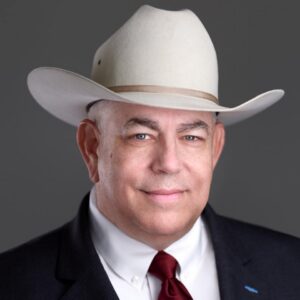- President Trump’s priority bill was sponsored by Lubbock Congressman Jodey Arrington
- Senator John Cornyn touted the benefits to Texans included in the legislation
- Collin County Congressman Keith Self initially voted against the bill on a procedural vote before supporting it on final passage
Texas Republican lawmakers on Capitol Hill are praising the passage of the “Big Beautiful Bill” that President Trump has prioritized to advance his agenda.
Formally known as H.R. 1, the bill was sponsored by Lubbock Congressman Jodey Arrington, who serves as Chairman of the House Budget Committee. After passing the Senate earlier in the week, the U.S. House concurred in the Senate’s amendments Thursday afternoon.
Senator John Cornyn touted the benefits to Texans in the “Big Beautiful Bill.”
“By passing the One Big Beautiful Bill, the Senate has delivered on President Trump’s hallmark legislative priority of his second term,” said Senator Cornyn upon the bill’s passage in the Senate on Tuesday.
“This bill puts Texans first by avoiding a massive tax increase on hardworking families, making historic investments to help secure our southern border, reducing financial barriers for Texans exercising their Second Amendment rights, and other priorities I have championed like reimbursing Texas for Operation Lone Star and allowing for the movement of the Space Shuttle Discovery to its rightful home in Houston. I was proud to cast my vote in strong support of this significant legislation, and I urge the House to swiftly send it to President Trump’s desk to become law so we can Make America Great Again.”
Senator Ted Cruz also applauded the passage of the Big Beautiful Bill, which included several provisions authored by Cruz on issues such as school choice, eliminating the tax on tips, and creating investment accounts for children.
“For over a decade, I have led the fight in the U.S. Senate for school choice. Today, the Senate passed my legislation to provide billions of dollars in K–12 scholarships for kids across the nation. This historic investment represents the largest federal school choice program ever passed. The OBBB also includes my No Tax on Tips Act to help waiters and waitresses, bartenders, taxi drivers, barbers, and hairdressers all across America. We also mandated the auction of 800 MHz of spectrum, which will enable us to beat China in the race to 6G—resulting in billions in new investments and the creation of hundreds of thousands of jobs,” said Senator Cruz.
“The Senate also passed my legislation creating Trump Accounts—personal investment accounts for every child in America—which will unleash the power of compound growth and create new generations of capitalists. I am also pleased to see the inclusion of our State Border Security Assistance Act, which is crucial for reimbursing the state of Texas for funds spent during the Biden administration’s illegal alien invasion.”
Congressman Jodey Arrington of Lubbock, the Sponsor of the Big Beautiful Bill, said the legislation will help make President Trump’s “America First vision a reality in the lives of the American people.” Arrington also described the legislation as “the most comprehensive and consequential set of conservative reforms in modern history.
The Big Beautiful Bill’s journey through the legislative process was not without drama, however.
Collin County Congressman Keith Self was one of five Republicans to initially oppose the bill on a procedural vote, obstructing its passage. Self’s initial vote against the bill was pilloried by supporters of President Trump, some of whom accused Self of grandstanding and called for him to face a challenger in the Republican Primary.
Rolando Garcia, a member of the State Republican Executive Committee said, “Self is just an attention whore who wants to feel important by making Trump call him and beg for his vote,” adding, “Self is a selfish clown.”
Ultimately, Self and other Republican holdouts flipped their votes and voted to send the Big Beautiful Bill to President Trump’s desk. Only two Republicans – Pennsylvania Congressman
Brian Fitzpatrick and Kentucky Congressman Thomas Massie – ended up opposing the bill on final passage.







